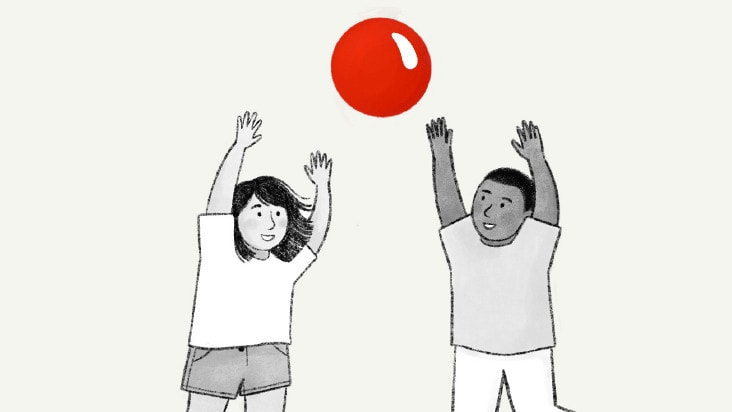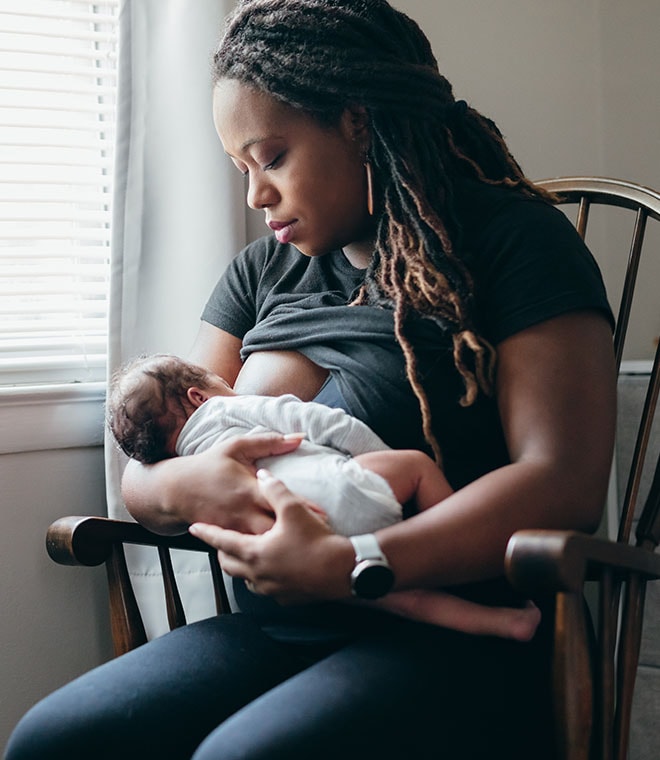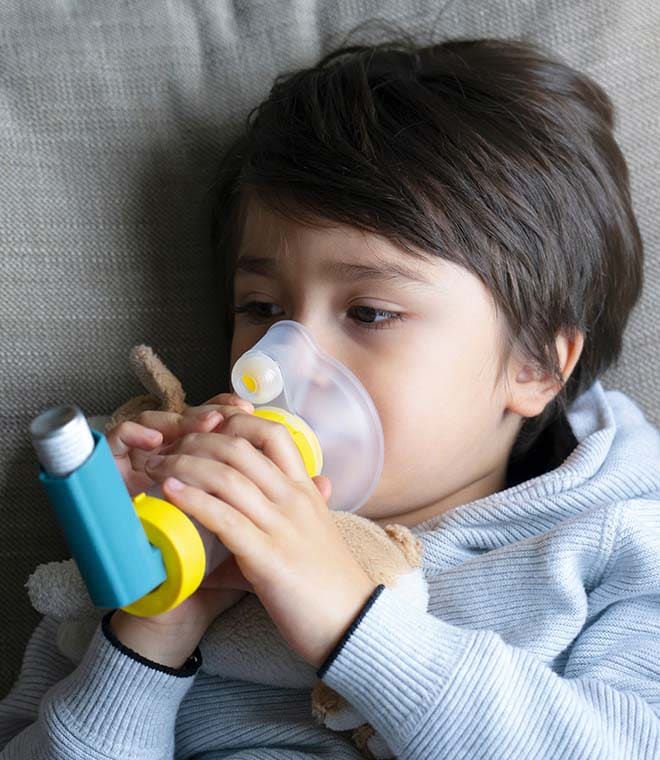Health
Stocking your medicine cabinet for babies and kids
By Ruben J. Rucoba, MD Oct 21, 2024 • 7 min
When you're a parent or caregiver, minor medical problems can occur at all hours of the day and night, so it's a good idea to have emergency supplies on hand. But there are some key differences between being prepared for an adult illness vs. a pediatric illness. It’s important to understand how to shop for medicine for babies and kids so your medicine cabinet is well stocked.
General guidelines for pediatric medicine
It’s a good idea to take inventory of your medicine cabinet on a regular basis. Check for expired medicines or those that need to be restocked and confirm that the supplies you have are still appropriate for your child’s age and weight.
Most oral medicines are given based on a child's weight, so make sure you have the appropriate concentrations/formulations for your child’s current weight. Also, some children's medication is not meant for babies. Check to see if there is an age limit listed on the packaging (for example: “6+ months” or “For children 2 and up”).
Every six months, check the expiration dates on these medicines and replace them if they've expired.
Pain relievers and fever reducers for kids
Pain relievers and fever reducers are commonly used for older babies and children. These include ibuprofen (Motrin or Advil) and acetaminophen (Tylenol). It's good to have both on hand, as sometimes you might want one but not the other. For example, ibuprofen can cause an upset stomach, so it's best not to give it to kids who are vomiting. Ibuprofen should not be given to those younger than 6 months. Too much acetaminophen is associated with liver damage, so for prolonged illnesses, it's best to use ibuprofen rather than acetaminophen.
Do not use aspirin for your child unless specifically told to do so by a medical professional, which is a rare situation. In younger children and even some teens, aspirin has been linked with a rare but potentially deadly condition known as Reye's syndrome, so aspirin and any product containing aspirin should be avoided for anyone younger than 19.
First aid supplies
For basic first aid and common ailments, keep these items on hand:
- Alcohol wipes
- Adhesive bandages in fun colors or prints
- Gauze bandages for bigger cuts
- Self-adhesive wraps for minor sprains
- Neosporin or another antibacterial ointment
- Hydrocortisone 1% ointment for itchy rashes
- Diaper cream for babies
- Sunscreen with a minimum of SPF 30
- Aloe (for mild sunburn)
- Anti-allergy oral medication, such as diphenhydramine (Benadryl), which is mildly sedating, and cetirizine (Zyrtec), which may also cause drowsiness. Do not use these in children under the age of 2 without consulting with your pediatrician first.
- Anti-allergy eye drops
- Clear fluid/electrolyte mixture, such as Pedialyte for dehydration (for example, from diarrhea)
- Petroleum jelly, such as Vaseline
- Antifungal cream for athlete's foot, ringworm or some diaper rashes
- Calamine lotion
- Antiseptic solution
- Eye shield or pad
Other supplies
These items are also important to have on hand:
- Thermometer. Make sure it's age-appropriate. For infants, a rectal thermometer is best. For young children, a thermometer that goes in the ear or on the forehead is best.
- Nail clippers
- Tweezers to remove a splinter or tick
- Pill cutter
- Scissors
- Bulb syringe or another suction device for babies
- Medication syringes or cups
- A small card with important information on it, such as your insurance information, your child's current weight and the date it was last obtained, any allergies or medical conditions, emergency contact numbers, phone number of your child's pediatrician, and the phone number for the Poison Control Hotline (800-222-1222).
Although there are many homeopathic remedies marketed for babies and kids, scientific evidence hasn’t been able to verify efficacy. In general, most pediatricians don't recommend homeopathic remedies.
Many parents also ask about the best vitamins and supplements to have on hand. A well-balanced diet is the best source of vitamins and nutrients. One exception is vitamin D for newborns. It's best to keep babies under 6 months old out of the sun, even though this is a main source of vitamin D. Formula contains vitamin D, but if you primarily breastfeed your baby, they may need some vitamin D supplementation. Your pediatrician may recommend supplements if your child's dietary habits or medical conditions put them at risk for a vitamin deficiency.
How to store medicines for babies and kids
Keeping all supplies out of children's reach is critical—especially the medicines. Keep them in a secure place separate from the bathroom medicine cabinet, which may be easily accessible. A medicine lockbox is a good way to keep these supplies safely stored. You can keep them in a to-go kit so that they're all in one place and easy to transport when leaving the house for a trip.
If you have babies or kids in the home, it's a good idea to have medicines and first aid supplies on hand so that you’re prepared when issues arise. If you have other questions about which items to include or how to store them, ask your pediatrician or Walgreens pharmacist.
Updated by Julie McDaniel, MSN, RN, CRNI, October 2024.
Sources:
- https://www.chop.edu/news/health-tip/how-stock-your-medicine-cabinet-pediatrician
- https://www.nationwidechildrens.org/conditions/liver-failure-in-children
- https://health.choc.org/family-medicine-cabinet-essentials
- https://www.stanfordchildrens.org/en/topic/default?id=reye-syndrome-90-P02620
- https://www.poison.org/articles/homeopathic-medications
- https://medlineplus.gov/druginfo/meds/a698026.html
- https://www.aad.org/media/stats-sunscreen
- https://www.aad.org/public/everyday-care/injured-skin/burns/treat-sunburn
- https://www.cdc.gov/nutrition/infantandtoddlernutrition/vitamins-minerals/vitamin-d.html
- https://www.healthychildren.org/English/safety-prevention/at-home/medication-safety/Pages/Ibuprofen-for-Fever-and-Pain.aspx
- https://www.cdc.gov/medication-safety/about/index.html
- https://www.stanfordchildrens.org/en/topic/default?id=treat-childrens-otc-medicines-with-care-1-1724
- https://medlineplus.gov/ency/article/002208.htm
- https://medlineplus.gov/medicinesandchildren.html
- https://www.mayoclinic.org/first-aid/first-aid-kits/basics/art-20056673
- https://medlineplus.gov/ency/article/001958.htm
- https://www.mayoclinic.org/first-aid/first-aid-kits/basics/art-20056673
- https://www.seattlechildrens.org/health-safety/injury-prevention/first-aid-kits/
- https://www.mayoclinic.org/healthy-lifestyle/infant-and-toddler-health/expert-answers/vitamin-d-for-babies/faq-20058161


